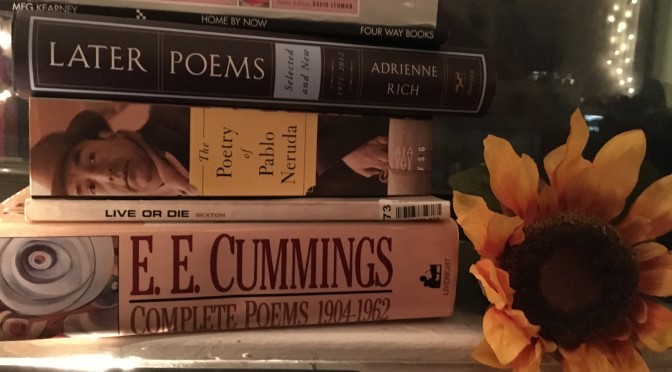For a lot people, creative writing is a daunting task, but I’m part of the population that finds fun and excitement in writing something original. At the UCWbL, we know that everyone who writes is a writer. Here, I’ll show you how everyone who writes can also be a creative writer.
Everyone finds inspiration in different ways. Some people type up The Great Gatsby word for word to know what it’s like to write a great novel. I don’t know about you, but I don’t really have that much time on my hands. For me, inspiration can actually be the shortest part of the writing process.
It’s important to note that inspiration rarely comes out of thin air. If it has for you before, every writer envies you. If you aren’t part of this tiny percentage of people, have no fear. My number one tip for finding inspiration is simple: read.
When you boil it down, writing is just a strategic ordering of words. The ordering part is easy, but finding the words is the meat of the job. So, where do you look for inspiration with words? Novels! Poetry! Short stories! While articles and readings your professors send you do have a lot of words, I recommend prose or poetry filled with fun words. Everyone has styles of poetry they enjoy and would like to draw inspiration from, so I’ll include a couple here.
(Before you find your favorite type of poetry, check out the links I’ve provided and keep in mind some of the words the poets use. Sometimes it only takes one word to spark an idea that you could write a whole poem about. Keep your mind and your eyes open!)
- The Legendary Poem – A lot of times when people groan about poetry, they’re thinking of things like Beowulf. Long, drawn out and wordy narrative poetry that doesn’t make a lot of sense on the first try, especially to the 21st century. If you’re into this kind of stuff, though, I’d definitely recommend this tale of betrayal and fate and all sorts of other themes indicative of a poem that holds up through the centuries.
- The Strongly Worded Poem by a Strongly Worded Female – Just because a poet wasn’t taught in your high school curriculum doesn’t mean they aren’t worthy of your readership. Take Clementine Von Radics, for example. She’s one of many female poets who have found their voice on Tumblr and has even published a poetry book. Her writing is personal, confessional and drips with images of fire and strength. Check out this short poem from her, and maybe explore some more on her website.
- The Poem That Doesn’t Really Make Sense But Also…Kind of Does? – E.E. Cummings is one of my favorite poets, but I have to say some of his writing is pretty far out there (I tried to google “ee cummings poem random letters” because I know those exist, but my search came up empty. They’re out there – just know that.). The poems that have some actual subjects and predicates, though, are very thought-provoking, and they teach you that sentence structure and punctuation are overrated sometimes. This poem is one of my favorites.
- The Formal (But Not Boring) Poem – I’m currently taking a whole course on Adrienne Rich and her early poetry was praised for the mastery of the craft. She uses uniform stanzas, rhymed poetry and sometimes iambic pentameter. Even with all that fancy stuff, she still writes about subjects that hit home and get emotional. Her poem Storm Warnings was the first poem from her first poetry collection, and it’s amazing.
So hopefully you’ve seen that poetry can be very formal, or it can be any random placement of words on a page. There’s really no wrong way to write a poem.
All of these poets also talk about very different subject matter – darkness, strength, life, hardship – using very different metaphors – storms, windows, crying on the floor etc. It just takes one idea to sprout into a poem – what’s yours?
P.S. Here’s even more poets/poems to spark your imagination: Neruda’s Love Poems, Shakespeare’s Numbered Sonnets, Maya Angelou, My Personal Favorite Poem (very important), Another Tumblr Poet, And Another, and Louise Gluck. Whatever your poetry preference is, it’s out there.
Discover more from UCWbLing
Subscribe to get the latest posts sent to your email.

